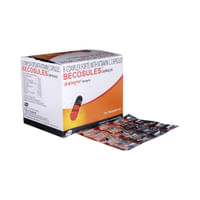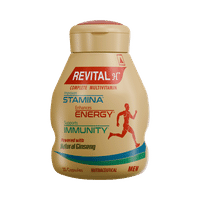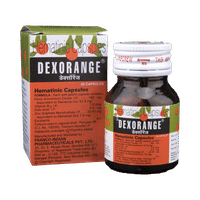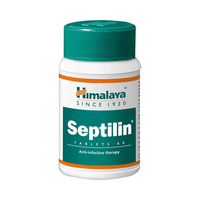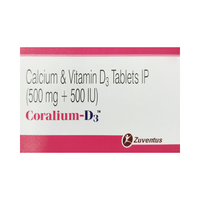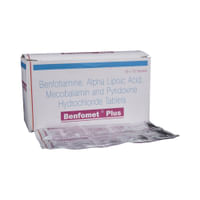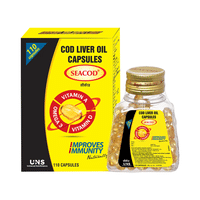Rs.142for 1 strip(s) (10 tablets each)
food interaction for Zilarta-CT
alcohol interaction for Zilarta-CT
pregnancy interaction for Zilarta-CT
lactation interaction for Zilarta-CT
food
alcohol
pregnancy
lactation
Zilarta-CT 40 Tablet may be taken with or without food, but it is better to take it at a fixed time.
None
None
CAUTION
Zilarta-CT 40 Tablet may cause excessive drowsiness with alcohol.
UNSAFE
Zilarta-CT 40 Tablet is unsafe to use during pregnancy as there is definite evidence of risk to the developing baby. However, the doctor may rarely prescribe it in some life-threatening situations if the benefits are more than the potential risks. Please consult your doctor.
CONSULT YOUR DOCTOR
Zilarta-CT 40 Tablet is safe to use during breastfeeding. Human studies suggest that the drug does not pass into the breastmilk in a significant amount and is not harmful to the baby.
SAFE IF PRESCRIBED
SALT INFORMATION FOR Zilarta-CT
Azilsartan medoxomil(40mg)
Uses
Azilsartan medoxomil is used in the treatment of Hypertension (high blood pressure), prevention of heart attack and stroke and Heart failure.
How it works
Azilsartan medoxomil is an angiotensin receptor blocker (ARB). It relaxes the blood vessel by blocking the action of a chemical that usually makes blood vessels tighter. This lowers the blood pressure, allowing the blood to flow more smoothly to different organs and the heart to pump more efficiently.
Common side effects
Dizziness, Diarrhea, Anemia (low number of red blood cells), Fatigue, Weakness, Increased creatine phosphokinase (CPK) level in blood, Nausea, Muscle spasm, Postural hypotension (low blood pressure), Cough, Increased uric acid level in blood, Increased creatinine level in blood, Itching, Angioedema (swelling of deeper layers of skin), Increased white blood cell count, Skin rash, Low blood platelets
Chlorthalidone(12.5mg)
Uses
Chlorthalidone is used for Hypertension (high blood pressure) and Edema. It treats oedema (fluid overload) associated with heart, liver, kidney or lung disease.
How it works
Chlorthalidone is a diuretic which lowers blood pressure by removing extra water and certain electrolytes from the body. Over time it also relaxes blood vessels and improves blood flow.
Common side effects
Headache, Nausea, Vomiting, Dizziness, Vertigo, Orthostatic hypotension (sudden lowering of blood pressure on standing), Erectile dysfunction, Electrolyte imbalance, Increased glucose level in blood, Increased uric acid level in blood, Weakness, Hypersensitivity, Renal impairment, Cholestasis, Jaundice, Photosensitivity
SUBSTITUTES FOR Zilarta-CT
22 Substitutes
22 Substitutes
Sorted By
 Rs. 183.50pay 24% more per Tablet
Rs. 183.50pay 24% more per Tablet Rs. 172pay 20% more per Tablet
Rs. 172pay 20% more per Tablet Rs. 187.50pay 30% more per Tablet
Rs. 187.50pay 30% more per Tablet Rs. 192.57pay 33% more per Tablet
Rs. 192.57pay 33% more per Tablet Rs. 184.85pay 26% more per Tablet
Rs. 184.85pay 26% more per Tablet
Expert advice FOR Zilarta-CT
- Take it at the same time every day to help you remember to take it.
- It can make you feel dizzy for the first few days. Rise slowly if you have been sitting or lying down for a long time.
- Your doctor may get regular tests done to monitor the level of urea, creatinine, and potassium in your blood.
- Avoid taking anti-inflammatory medicines such as ibuprofen along with this medicine without consulting your doctor.
- Do not take Azilsartan medoxomil if you are pregnant or breastfeeding.
- Do not stop taking it suddenly without talking to your doctor.
- Take it at the same time every day to help you remember to take it.
- It can make you feel dizzy for the first few days. Rise slowly if you have been sitting or lying down for a long time.
- Your doctor may get regular tests done to monitor the level of urea, creatinine, and potassium in your blood.
- Avoid taking anti-inflammatory medicines such as ibuprofen along with this medicine without consulting your doctor.
- Do not take Azilsartan medoxomil if you are pregnant or breastfeeding.
- Do not stop taking it suddenly without talking to your doctor.
Frequently asked questions FOR Zilarta-CT
Azilsartan medoxomil
Q. Which class does Azilsartan medoxomil belong to?
Azilsartan medoxomil belongs to a class of medicines called angiotensin II receptor antagonists (AIIRAs). Angiotensin II is a substance which occurs naturally in the body. It tightens the blood vessels, which in turn increases the blood pressure. Azilsartan medoxomil blocks this effect so that the blood vessels relax, which helps lower your blood pressure.
Q. How should I take Azilsartan medoxomil?
You should take Azilsartan medoxomil exactly as directed by your doctor. It is for oral use and is usually taken once a day. You should take it with plenty of water, with or without food. It is recommended that you take this medicine at the same time every day.
Q. How long does Azilsartan medoxomil take to start working?
Azilsartan medoxomil may take about 2 weeks to show a visible reduction in blood pressure. Full benefits of Azilsartan medoxomil may take a little longer, about 4 weeks.
Chlorthalidone
Q. Can I drink alcohol while taking Chlorthalidone?
No, do not take alcohol while on treatment with Chlorthalidone. Taking alcohol with Chlorthalidone may lower your blood pressure suddenly making you feel dizzy and lightheaded.
Q. What happens if I take more than the recommended dose of Chlorthalidone?
If you take more than the prescribed dose of Chlorthalidone, you may experience nausea, lightheadedness, weakness, fast or irregular heart beat, sleepiness, muscle cramps and pain, difficulty in breathing. Taking this medicine in high doses may even cause a heart attack. In a situation like this, contact your doctor immediately or seek emergency help in a nearby hospital.
Q. Can I take ibuprofen with Chlorthalidone?
This combination is best avoided since the two medicines may interfere with each other. However, if your doctor advises you to take both ibuprofen and Chlorthalidone, you will need to keep a regular check on your blood pressure and also monitor your kidney function tests.














